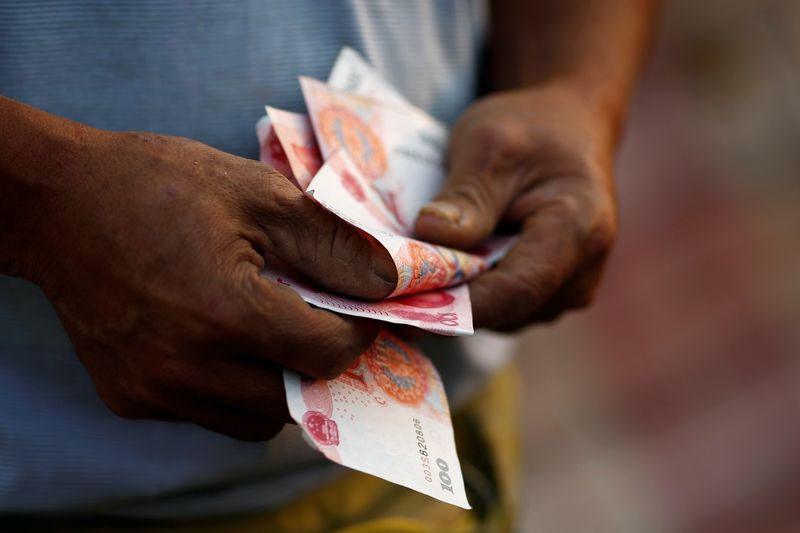China bank lending rises far less expected in November
2024.12.13 08:22
BEIJING (Reuters) – New bank lending in China rose by far less than expected in November, highlighting weak credit demand in the world’s second-largest economy as policymakers pledge to roll out more stimulus measures.
Chinese banks extended 580 billion yuan ($79.72 billion) in new yuan loans in November, up from October but missing analysts’ forecast as the central bank steps up support for the economy.
Analysts polled by Reuters had predicted new yuan loans would rise to 990 billion yuan last month, from 500 billion yuan in October and against 1.09 trillion yuan a year earlier.
The People’s Bank of China (PBOC) does not provide monthly breakdowns, but Reuters calculated the November figures based on the bank’s Jan-Nov data on Friday, compared with the Jan-Oct figure.
The PBOC said new yuan loans totalled 17.1 trillion yuan for the first 11 months of the year.
China’s leaders, at the annual agenda-setting Central Economic Work Conference that concluded on Thursday, pledged to increase the budget deficit and cut interest rates and banks’ reserve ratios to counter the impact of expected U.S. trade tariffs on next year’s economic growth.
Earlier this week, the Politburo promised to switch to an “appropriately loose” monetary policy stance.
Chinese policymakers have scaled up stimulus since late September to tackle a slump in the property market and ballooning local government debt, in efforts to reach this year’s economic growth target of around 5%.
Reuters reported last month that government advisers recommended that Beijing keep its growth targetof around 5% unchanged next year.
The government launched a $1.4 trillion debt package last month to ease local government balance sheets and unveiled tax incentives on home and land transactions to spur demand and ease the financial burden on developers.
Broad M2 money supply grew 7.1% in November from a year earlier, central bank data showed, below analysts’ 7.5% forecast in the Reuters poll. In October, M2 grew 7.5%.
The narrower M1 money supply fell 3.7% in November from a year earlier, moderating from a 6.1% drop in October.

Outstanding yuan loans grew 7.7% in November from a year earlier. Analysts had expected 7.9% growth, slower than the 8.0% recorded in October.
($1 = 7.2754 renminbi)








